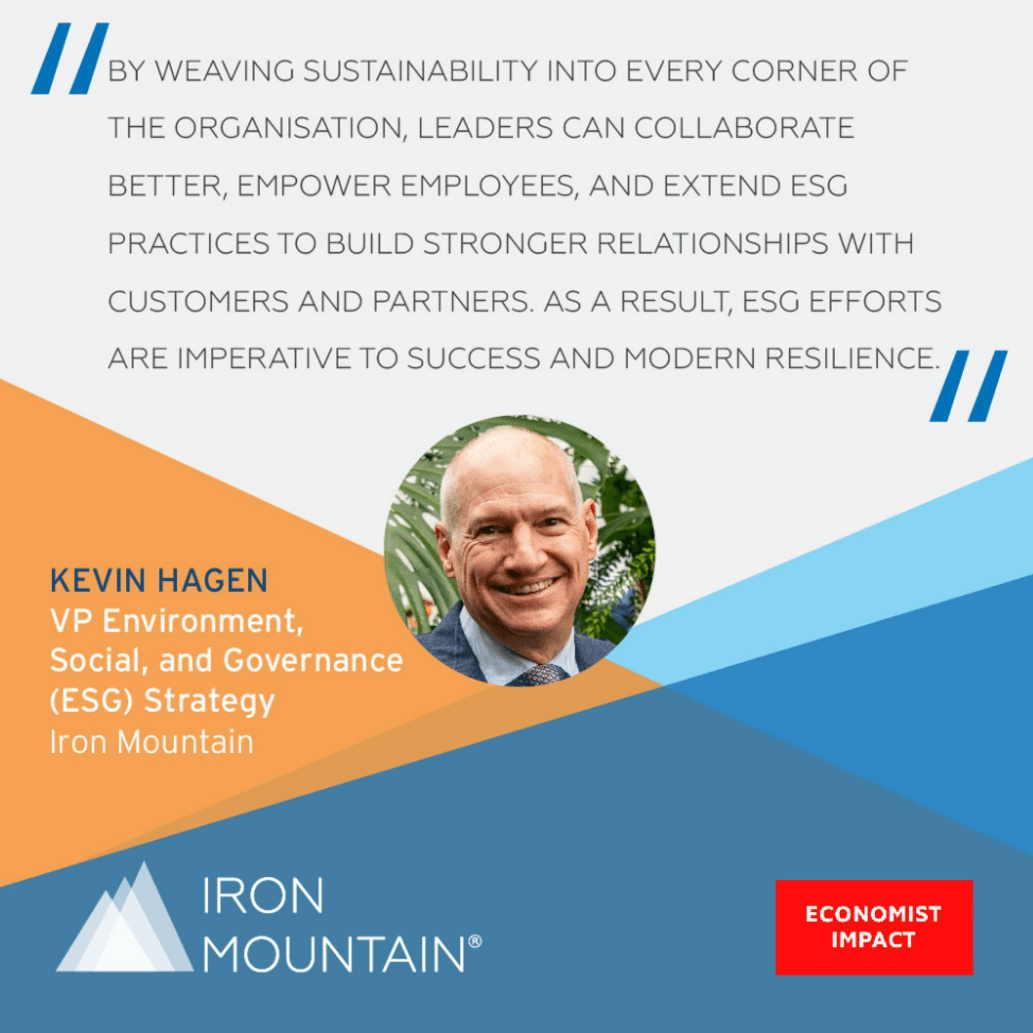업무 생산성 향상
오늘 무료 상담을 받아보세요!
When ESG is ingrained in our everyday work processes, it becomes a core driver of your organisation’s resilience

Avoiding the reduction of natural resources in an efficient manner. That’s sustainability, right? It’s safe to say that’s what most people think. So it’s understandable for organisations to naturally gravitate toward having more environment-led initiatives when they talk about sustainability. However, that only pertains to the E in ESG — Environmental, Social, and Governance — the three key pillars of “sustainability.”
The concept of ESG grew out of the 2004 United Nations report, Who Cares Wins. This report established ESG as the necessary focus area to ensure stronger investment markets and the sustainable development of society.
From then on, we’ve seen more and more stakeholders (investors, customers, employees, etc.) asking questions about ESG and how to drive it within their organisations. These groups are also seeking to do more business with other organisations that have strong and transparent ESG programmes.
And while some may use the terms sustainability and ESG interchangeably, each area stands on its own:
From the disposition of electronic devices to the paper you recycle, and even to the energy consumed by your data centres, there’s an ESG component to consider.
And when ESG is ingrained in your everyday work processes, it becomes a core driver of your organisation’s resilience.

Organisations have been well aware of the importance of sustainability for years. In fact, nearly half of respondents to our Economist Impact survey indicated that they implemented ESG initiatives prior to the pandemic. But something happened over the course of the pandemic that ramped up global efforts, with sustainability now one of the top five priorities for organisations.
With more people working remotely, the supply undergoing a major stress test, and employee well-being coming into focus, organisations have reevaluated their ESG efforts.
For example, while 44% of organisations prioritised dedicated sustainability staff and resources to foster resilience just a few years ago, that number jumped up to nearly 78% since the pandemic. Because of this increase in sustainability staff, ESG-led initiatives can be achieved at a larger, more rapid scale. And, as a result, 67% of organisations believe they’re ahead of their peers in making progress toward their ESG goals and commitments.
Is your organisation as resilient as you think?
The move to Modern Resilience doesn’t need to be an uphill battle. Get started with the 2022 global study, courtesy of Economist Impact and Iron Mountain.
Building organisational resilience is complex at the best of times. Until organisations are pushed to their limits, there’s no clear way to know how resilient they are. There’s also no motivating factor to test the limits.
When it came to the pandemic, organisations needed to figure out a way to continue their business operations under duress. And they weren’t alone—the entire world was going through the same thing at the same time. However, those with ESG initiatives already in motion had a protective layer.
Organisations discovered they needed to focus more attention on these areas to strengthen their ESG (and resilience) efforts:
While nearly 95% of those surveyed in our research with Economist Impact are confident their sustainability initiatives can support resilience and continuity in the event of a significant, unexpected disruption, there are still areas for improvement.
Through our research, we discovered what’s needed to strengthen ESG-driven resilience in the future:
ESG initiatives are no longer a nice-to-have but a necessary part of helping organisations ensure resilience for an unknown future. To gain a better understanding of how to boost your ESG objectives, visit our Sustainability page.
*McKinsey Quarterly. Five ways that ESG creates value. November 2019.
Iron Mountain은 사회적으로 책임감 있는 방식으로 고객에게 가장 중요한 가치를 보호하고 실현하는 혁신적이고 신뢰할 수 있는 파트너가 되기 위해 노력합니다. 우리는 함께 도전하고 다른 사람들에게 영감을 불어 넣어 환경과 사회에 긍정적인 영향을 미치는 혁신적인 비즈니스 솔루션을 만들어냅니다.
Are organisations ready to face the next unknown? This report, co-sponsored by The Economist and Iron Mountain, helps to answer that question.
오늘 무료 상담을 받아보세요!